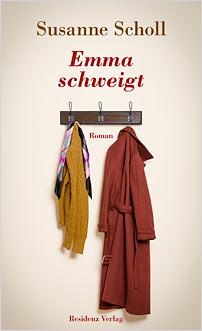review
Emma’s Silence tells the story of an encounter between an elderly, small-minded Viennese woman and a woman who has fled to Austria from the violence in Chechnya with her son.
Emma, the old woman, first meets Sarema and her son Schamil in a supermarket, where they come to her aid after a fall. They watch over her while she is in her hospital bed, and when Emma is discharged her son Hansi asks them to take care of her. For Sarema, this is a welcome relief from the desolation and boredom of life in the centre for asylum-seekers, and she appreciates Emma’s helping Schamil with his school work. Shopping, cooking and cleaning also distract her from the reasons why she fled Grozny: the violent fate of her husband and elder son; the slow deaths of her newborn baby girl and parents-in-law; her sister’s abduction and her own rape whilst trying to buy her sister’s freedom from a man who has sworn to kill her.
In the early part of the book, the narrative switches back and forth between depictions of Emma’s difficult relations with – and disappointment in – her family, and the traumatic events that lead Sarema to Vienna by way of various traffickers and refugee camps. As the threat of deportation looms, other refugees encourage Sarema to go into hiding, and she realises that her link to Emma could prove useful. Yet when she asks indirectly whether she and Schamil might move into Emma’s spare bedroom, she is met with mistrust. By the time Emma summons up the curiosity to search for the missing Sarema and Schamil at the asylum centre, it is too late; they are already on the plane back to Grozny after their asylum application was turned down. Yet just as the reader steels themselves for the worst, Scholl offers a glimmer of hope when Sarema finds some jewellery sewn into the hem of her coat and prepares to escape Grozny for a second time …
Susanne Scholl relays the intriguing encounter between the novel’s two main characters by laying bare their unspoken impressions and suspicions. We are inside their minds, listening to the cultural prejudices distorting their judgements about each other. The novel’s clear prose often feels closer to journalism than fiction, but it is no less emotive and effective for that, intertwining one woman’s account of living through the horrendous years of the Chechen conflict with a tale of uprooting and migration.



All recommendations from Spring 2014